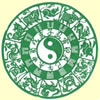

Healthy Living Special Report
Try Tai Chi for Your Health
"You don’t have to be a world-class athlete to do tai chi -- and the health benefits can be tremendous.
Perhaps you’ve caught sight of them in a park on a sunny day -- people moving in synchrony as they perform a series of graceful, flowing movements. Most likely, they’re practicing tai chi, an ancient Chinese form of exercise that can help people of all ages improve their flexibility, balance, and muscle strength.
Now recent studies indicate that tai chi may help with a range of medical problems, including Parkinson’s disease, high blood pressure, and rehabilitation after knee replacement surgery
Tai chi was developed more than 700 years ago as a method of self-defense. Over the centuries, however, tai chi has evolved into an art that exercises both the body and the mind, so that it is no longer just one of the martial arts. Often referred to as meditation in motion, tai chi combines deep breathing with postures that flow from one to another through a series of slow, relaxed, and continuous movements that are termed a "form.”
Potential Health Benefits of Tai Chi
- Tai chi and improved balance and fall prevention. Because tai chi increases muscle strength in the legs and arms and helps improve balance and flexibility, it can reduce the risk of falls. This effect may be particularly helpful for people with Parkinson’s disease -- a condition that can cause instability.
- Tai chi and blood pressure reduction. A recent study has raised some questions about the effectiveness of exercise alone for controlling high blood pressure in older adults, but there is some evidence that the regular practice of tai chi may achieve a modest reduction in blood pressure. A study conducted several years ago by Johns Hopkins researchers found that tai chi lowered systolic blood pressure almost as much as moderate aerobic exercise in individuals age 60 and older who previously were sedentary.
- Tai chi and pain reduction. A randomized controlled trial published in the Journal of Rheumatology found that a 12-week program of tai chi significantly reduced arthritis pain and joint stiffness and improved physical functioning in a group of older women with osteoarthritis, compared with women in a control group.
- Tai chi and cardiovascular health. Similar to what is seen with other types of exercise, the long-term practice of tai chi appears to improve cardiovascular fitness and oxygen uptake and may delay the decline of cardiovascular and respiratory function.
- Tai chi and improved sleep quality. Tai chi exercise also appears helpful for easing sleep disturbances. In a study reported in the Journal of the American Geriatrics Society, the regular practice of tai chi helped the participants, who ranged in age from 60 to 92, sleep better and reduced daytime sleepiness, compared with a program consisting of seated exercises combined with controlled breathing and stretching.
- Tai chi and immune function. There is some recent evidence that tai chi may also boost immunity to shingles, which is caused by reactivation of the chickenpox (varicella) virus. In one study, 36 adults age 60 or older were randomly assigned to either a 15-week program of tai chi or a control group. One week after completion of the study, blood tests revealed that immunity to the shingles virus had increased by half in the tai chi participants but remained unchanged in the control group.
- Tai chi and stress relief. The slow, deep breathing practiced in tai chi can help people relax, and several trials have shown that people doing tai chi had lower levels of depression and psychological distress and improved wellbeing compared with the control groups. Tai chi classes can also be a relaxing means of socializing.
Bottom-line on tai chi. You don’t have to be a world-class athlete to do tai chi. The movements are less jarring than those in a low-impact aerobic exercise class, and with proper training even the most sedentary among us can safely embark on a program of tai chi. "
RETURN TO HEALTH PAGE
|







